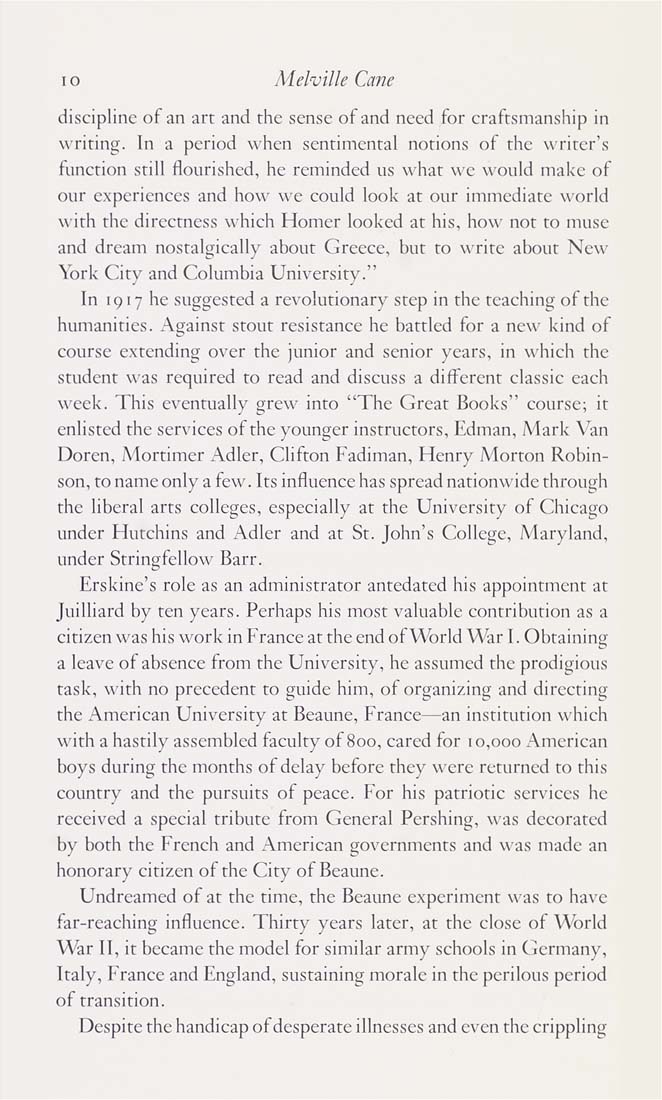Columbia Library columns (v.7(1957Nov-1958May))
(New York : Friends of the Columbia Libraries. )
|
||
|
|
|
|
| v.7,no.1(1957:Nov): Page 10 |

10 Melville Cane discipline of an art and the sense of and need for craftsmanship in writing. In a period when sentimental notions of the writer's function still flourished, he reminded us what we would make of out experiences and how we could look at our immediate world with the directness which Homer looked at his, how not to muse and dream nostalgically about Greece, but to write about New York City and Columbia University." In 1917 he suggested a revolutionary step in the teaching of the humanities. Against stout resistance he battled for a new kind of course extending over the junior and senior years, in which the student was required to read and discuss a different classic each week. This eventually grew into "The Great Books" course; it enlisted the services of the younger instructors, Edman, Mark Van Doren, Mortimer Adier, Clifton Fadiman, Henry Morton Robin¬ son, to name only a few. Its influence has spread nationwide through the liberal arts colleges, especially at the University of Chicago under Hutehins and Adler and at St. John's College, Maryland, under Stringfcllow Barr. Erskine's role as an administrator antedated his appointment at Juilliard by ten years. Perhaps his most valuable contribution as a citizen was his work in France at the end of World Wir 1. Obtaining a leave of absence from the University, he assumed the prodigious task, with no precedent to guide him, of organizing and directing the American University at Beaune, France—an institution which with a hastily assembled faculty of 800, cared for 10,000 American boys during the months of delay before they were returned to this country and the pursuits of peace. For his patriotic services he received a special tribute from General Pershing, was decorated by both the French and American go\'ernraents and was made an honorary citizen of the City of Beaune. Undreamed of at the time, the Beaune experiment was to have far-reaching influence. Thirty years later, at the close of World War II, it became the model for similar army schools in Germany, Italy, France and England, sustaining morale in the perilous period of transition. Despite the handicap of desperate illnesses and even the crippling |
| v.7,no.1(1957:Nov): Page 10 |







